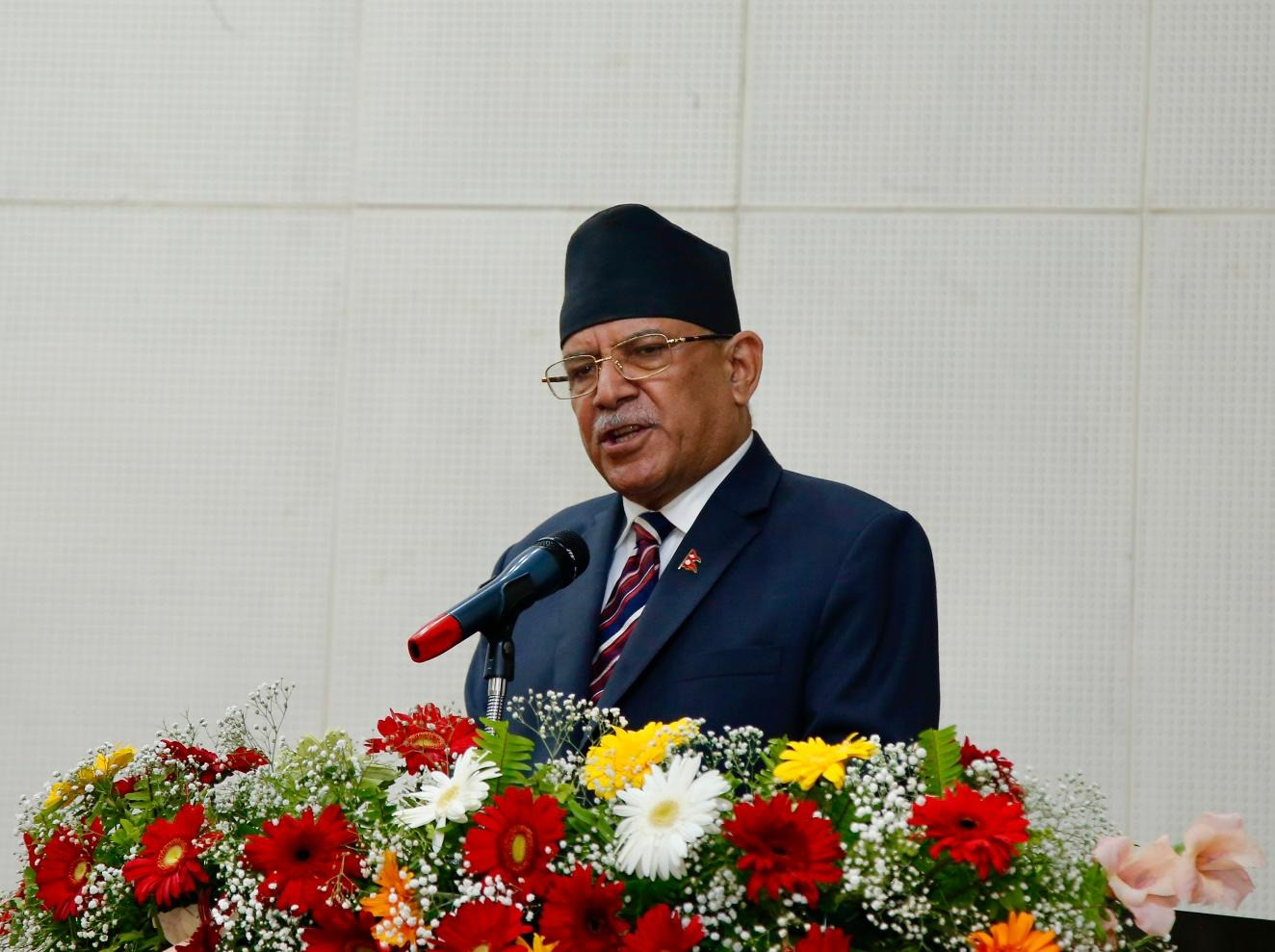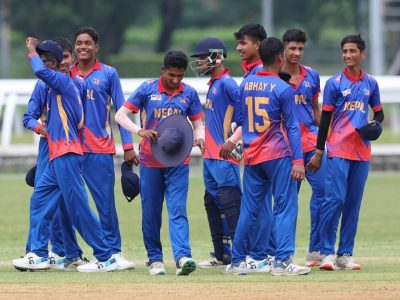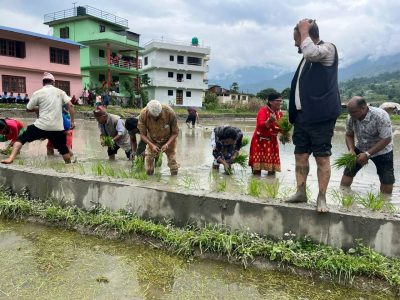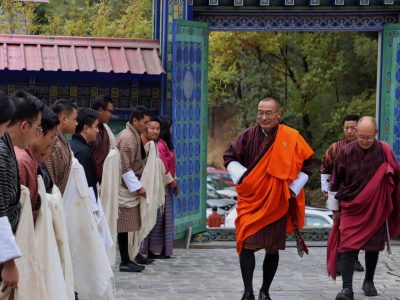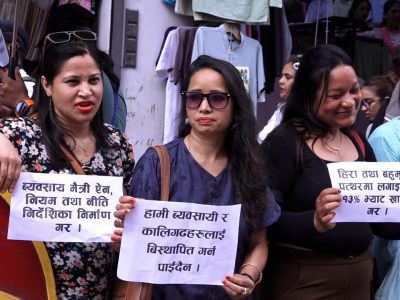Kalpatra : Is there room for ethics in the realm of politics?
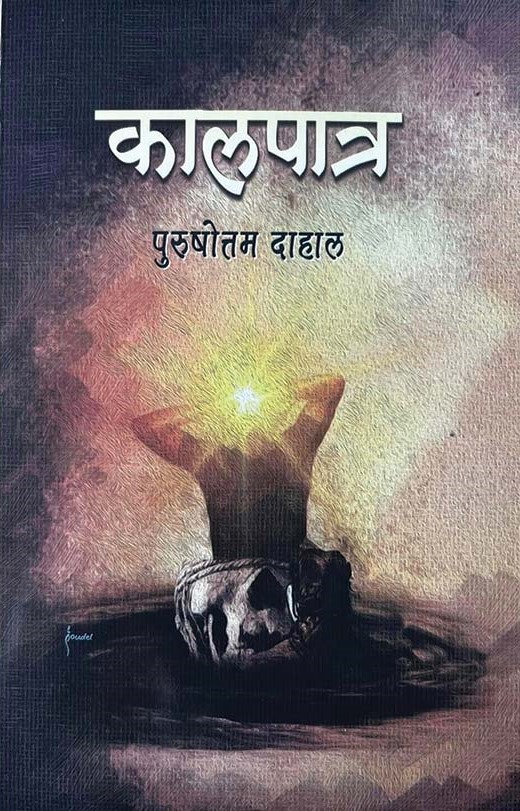
Noted journalist Purushottam Dahal has come up with his eleventh creation, a novel, this time. The novel named ‘Kalpatra’ is a political fiction, exposing multifarious maladies and anomalies, which have plagued the Nepali polity. Also a professor of political science, journalist Dahal, who meticulously observed Nepali politics and lives of many political leaders for over four decades, has painted sorry picture of politicos in the novel and pointed out urgency of correction and reform. Although the novel has tragic end, it has urged one and all to hopeful for rebirth of some good and honest characters and leaders, who would ensure peace, justice, harmony, development and prosperity in the country.
Are Nepali political leaders as depicted in the novel? The question obviously intrigues readers. Several other questions have been raised by the novel relating to politics, organization building, leadership, cadres-leaders relations, money dominating politics, development practices, intervention in bureaucracy, nexus between politicos and bureaucrats, ideological erosion, fading morality and dishonour of democracy.
The story in the novel largely rotates around the formation of a political party named Sajjanlok Party, its expansion efforts to grassroots, mobilization of leaders and cadres, activities to attract youths by hooks and crooks, undue influence to security and bureaucracy, ill efforts to misuse judiciary. The Sajjanlok Party is captured by a family and its acolytes. There is rife sycophancy, immorality, and indulgence in the party, however, it is not questioned by the followers. It is a new political party and has craze. But, it is hollow in deed- ideology is unclear, fair business vanishes once the top leader grabs ministerial post. The story has tragic end- both main characters of novel, ‘Kukarma’, and ‘Lawanti’ die at the end. Their deaths are mysterious.
As a leading character in the novel, Kukarma, becomes a minister, he forgets everything he had said before to people. His yearning for money, power and party is further bolstered by his son, ‘Apakarma’ and spouse. While talking to his cadres, Kukarma said, “In order to continue one’s career in politics for long and wield power and expand influence accordingly, he/she must have judges, employees and smart lawyers in his/her favour.” Similarly, the false pride of becoming minister and having knowledge on entire gamut of issues is another bitter reality. The novelist mentions (page 59), “Minister Kukarma also has that divine knowledge. The post of minister he has been holding for some months has given him huge knowledge- omniscient, ideologue, planner and strategist. He is transferring such knowledge to his aides.”
Even a smart and active female local leader of another party, Lawanti, enters this party in a bid to reach top political post. She is a major connection between minister Kukarma in the central politics, and local level cadres at grassroots. Minister Kukarma’s overture with Lawanti is abhorring, but due to power and influence of Kukarma, it is hushed in the party.
Readers can interpret title of the novel in different ways and build argument for justification. However, kernel is ‘time’. ‘Kal’ has multiple meanings in Nepali- time, death. ‘Patra’ means character, attitude, behaviour. Here, ‘Patra’ is also a defining character in the novel, who is ignited with wisdom, that he criticizes bad practices fueling in the party, but in the ultimate days. Many characters are named after their works and meaning.
The novel bears both modern and postmodern themes- uncertainty, aberration, disruption, amour and paramour, contradiction, chaos, disarray, deception and duplicity, decay and deaths, mess and miasma, subversion, perversion, and yearning for purgation.
Similarly, the novel applies epiphany. The epiphany in Patra and the epiphany in Karma are however different. The epiphany is life-saving in Patra while it is lethal to Karma. Thanatos –the death instinct- is triggered by the utmost regret and sin in Karma. As a result, he commits suicide within few weeks of the demise of Lawanti. The readers are bound to mull how devastating moral shock Karma might have undergone after the death of Lawanti. Importantly, it is not sure whether Lawanti, a leading female character in the fiction, committed suicide, or she was killed by others.
As I was making points for the review of this novel, I was pondering the national political situation and governance system. At the same time, a news story pops up: “… once a leader or lawmaker of any political party becomes a minister, his/her thought is changed much that it is very harmful. Similarly, the government officials have hurtful tendency of concentrating authority.” It was what CA member Radheshyam Adhikari saying in a meeting of the Delegated Management and Government Assurance Committee recently. It evidently reiterates that behaviour of Nepali politicos and public officials as depicted in the novel is esurient. Post, position and power that politics and public offices ensure to us make us so corrupt that entire system suffers the bad governance.
Moreover, the hassles and hurdles are common for any service seeker in most of the public offices. We wonder and even throw tea party to the friends if we get works done in an easy and prompt manner at government offices. Despite this, speeches are full of slogan for good governance, progress and prosperity. The political contradiction is not secretive but blatant and manifest, thereby fueling chagrin to citizens.
The novel has come at a time the political behaviour has made people despair. But, let’s hope for change, as the novel urges in the final lines. The book is published by Impression Publication and Media Pvt. It costs Rs 525.
Except the headline and the cover picture, this story has not been edited by DCNepal staff and is published from a syndicated feed by RSS.
Facebook Comment
latest Video
Trending News
- This Week
- This Month



